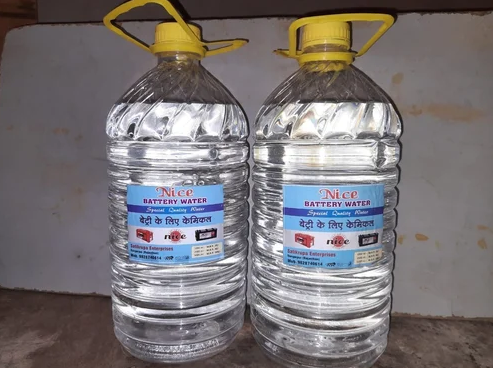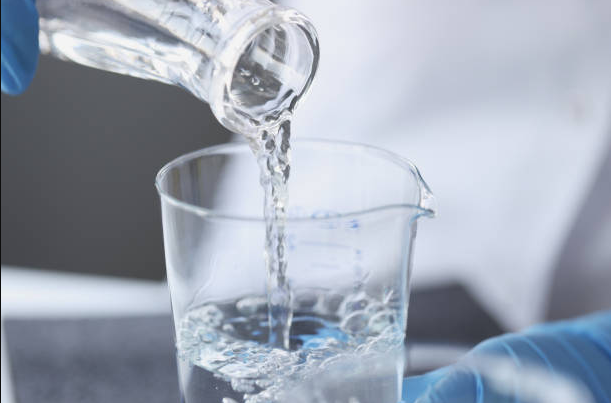Water is essential to life, yet not all water is created equal. For centuries, people have sought ways to remove impurities from water to make it cleaner, safer, and suitable for various purposes. Among these methods, distillation stands out as one of the most effective. This blog will explore the fascinating topic of distilled water — its benefits, uses, and why it’s known as the purest form of water.
What Is Distilled Water?
Understanding the Basics
Simply put, distilled water is water that has been boiled into vapor and condensed back into a liquid in a new container. During this process, impurities, contaminants, and even natural minerals are left behind, resulting in ultra-pure water.
Here’s how the distillation process works:
- Water is boiled to create steam.
- The steam rises, leaving behind impurities, salts, and minerals.
- The steam is cooled, converting it back into water.
The result? Water containing just hydrogen and oxygen, free from other substances typically found in tap or filtered water.
What Makes Distilled Water Unique?
Unlike other water purification methods like filtering or reverse osmosis, distillation removes everything — both harmful contaminants and beneficial minerals. This makes distilled water uniquely clean and ideal for specific applications that require absolute purity.
How Does Distilled Water Compare to Other Types of Water?
Tap Water
Tap water is convenient but often contains trace amounts of chlorine, fluoride, and other chemicals used to make it safe for consumption. However, it may also harbor impurities depending on local water sources.
Filtered Water
Filtered water is treated to remove some contaminants and improve taste, but it may still contain dissolved minerals and trace impurities.
Purified Water
Purified water has been cleaned through advanced processes like reverse osmosis or ultraviolet treatment. While it’s free of contaminants, it may retain some natural minerals, unlike distilled water.
Why Distilled Water Stands Out
Distilled water is the purest option available. By removing over 99.9% of impurities, it’s ideal for situations where absolute purity is essential.

Can You Drink Distilled Water?
Is It Safe to Drink?
Yes, distilled water is safe to consume, but you’ll notice it tastes different — some describe it as “flat” or “bland.” This is because crucial minerals like calcium and magnesium that give water its natural flavor are removed during distillation.
Benefits of Drinking Distilled Water
- Free of Harmful Contaminants: Distilled water is free of pesticides, bacteria, and other potential toxins.
- Ideal for Sensitive Immune Systems: Its purity makes it suitable for people with compromised immune systems or those needing water for medical purposes.
Drawbacks of Drinking Distilled Water
- Lacks Minerals: While tap or filtered water supplies small amounts of essential nutrients, distilled water does not contain these minerals.
- May Not Provide Optimal Hydration: Since certain electrolytes are missing, it might not hydrate as effectively as mineral-rich water.
The Many Uses of Distilled Water
Practical Applications
Distilled water has a surprisingly wide range of uses due to its purity:
- Medical Tools and Procedures: Used in CPAP machines, dialysis equipment, and sterilization of medical instruments.
- Laboratories and Cosmetics: Essential for experiments and chemical formulations to avoid contamination.
- Household Appliances: Ideal for irons, humidifiers, and car batteries, as it prevents scale buildup and corrosion.
Everyday Convenience
Besides industrial and medical uses, distilled water can enhance your daily routine:
- Cooking and Baking: Perfect for recipes that rely on precise chemical proportions.
- Cleaning: Distilled water leaves no residue, making it perfect for cleaning delicate surfaces.
- Pet Care: Fish tanks and aquariums thrive when distilled water is supplemented with the appropriate minerals.
How to Make Distilled Water at Home
Step-by-Step Process
Making distilled water at home might seem like a chemistry experiment, but it’s simpler than you think. Here’s what you need to do:
- Gather Supplies: You’ll need a large pot, a smaller pot, a lid, and ice cubes.
- Set It Up: Add tap water to the large pot and place the smaller pot inside, ensuring it floats without touching the bottom.
- Boil the Water: Heat the large pot until the water boils and begins to create steam.
- Capture the Condensation: Turn the lid upside down, placing ice cubes on top to accelerate condensation into the smaller pot.
- Collect Your Water: The liquid that collects in the smaller pot is distilled water.
Key Tips
- Use oven mitts to handle the hot equipment.
- Make small batches to ensure safety and efficiency.
Benefits of DIY Distillation
Making distilled water at home can save you money and ensure a steady supply during emergencies or shortages.
Is Distilled Water Just Boiled Water?
Key Differences
While boiling destroys harmful bacteria, it doesn’t remove dissolved contaminants like salts or heavy metals. Distillation, on the other hand, not only kills bacteria but also removes these impurities.
Think of boiled water as being sanitized, while distilled water is purified.
What Is Distilled Water Called in Urdu?
For multilingual readers, distilled water is known as “عرق شدہ پانی” in Urdu (Transliteration: “Arq Shuda Pani”). It’s often used in medical and laboratory settings in countries like Pakistan, where purity is crucial.
Benefits of Using Distilled Water
- Extends Appliance Lifespan: No minerals mean no limescale buildup.
- Optimal for People with Medical Needs: Perfect for individuals requiring sterile conditions.
- Versatile Use: From pharmaceuticals to household applications, its broad utility makes it a valuable commodity.
Risks and Limitations of Distilled Water
While distilled water is highly versatile, it does have limitations:
- Long-Term Consumption Risks: Continuous consumption may lead to a lack of essential minerals, affecting bone health and hydration.
- Requires Mineral Substitution in Sensitive Uses: Whether for fish tanks or dietary intake, essential minerals may need to be added back.
Frequently Asked Questions
Can you drink distilled water every day?
Yes, but it’s advisable to balance it with water containing essential minerals to avoid potential deficiencies.
How long can distilled water be stored?
If sealed properly, distilled water can last indefinitely. Always store it away from direct sunlight and in non-reactive containers like glass.
Is distilled water better for appliances like humidifiers?
Yes! Distilled water prevents mineral buildup, extending the device’s life.
What is the difference between distilled and purified water?
Distilled water is a type of purified water, but purification processes like reverse osmosis preserve some minerals.
Where can I buy distilled water?
Distilled water is widely available in grocery stores, pharmacies, and online retailers.
Why Distilled Water Is Worth Considering
Distilled water is uniquely pure and versatile, making it indispensable for specific needs like medical equipment, cooking, and household appliances. While not ideal for everyday drinking due to the lack of minerals, it shines in applications requiring absolute purity.
Looking to ensure maximum water quality at home? Try making a batch of distilled water yourself following our step-by-step guide. You’ll be contributing to both your health and sustainability.
Have questions about water purity? Drop a comment below or explore more of our resources on keeping your water clean and safe!


